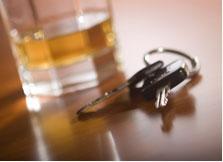Field Sobriety Tests


Most people are unaware that they have a right to refuse taking a field sobriety test. In fact, there is no legal obligation to perform a field sobriety test if requested to do so and your refusal to take the test is inadmissible against you in the courtroom. By refusing to take the field sobriety test, the prosecutor will have less potential evidence to convict you.
The Boston criminal defense lawyers at Bellotti Law Group, P.C. would suggest that if you have been drinking and believe that you would fail the field sobriety test even while sober, be in because of the type of footwear you have on, coordination issues, weight issues, or an injury, refusal to take the field sobriety test is likely in your best interest.
It is important to note that field sobriety tests cannot determine chemical intoxication. Instead, they are tests of balance, memory, and your overall ability to listen, understand, and perform tasks. You simply cannot fail these tests if you politely refuse. Remember, though, it is imperative to decline politely and request to speak to a criminal attorney. Otherwise, your words or actions can be used against you and prove to be more detrimental than a failed test.
If you or a loved one is facing OUI/drunk driving charges, it is imperative to call a team of experienced Boston criminal defense attorneys at Bellotti Law Group, P.C. We have successfully defended thousands of OUI/drunk driving charges over decades of criminal practice. Contact us today at 617-225-2100.
What Are The Different Types Of Field Sobriety Tests?
The most common field sobriety tests include the “heel to toe” or “walk and turn” test, standing on one leg and maintaining balance, the “finger to nose” test, and a multitude of other memory, basic aptitude, and physical tests.
What Are Key Factors To Passing/Failing A Field Sobriety Test?
The National Highway Traffic Safety Administration (NHTSA) has previously compiled a lest of common symptoms drivers operating under the influence exhibit. Police officers likely take note of the following, amongst other indicators:
- Difficulty turning or turning with a wide radius
- Riding in two lanes or straddling the center line
- Appearing intoxicated
- Nearly striking other vehicles or objects
- Weaving in and out of traffic
- Driving off-road
- Swerving
- Speeding
- Stopping without reason/cause
- Tailgating
- Drifting
- Erratic braking
- Signaling not matching driving actions
What Are The Physical Signs Of Intoxication?
The Massachusetts police academy trains officers to take note of symptoms of intoxication, including:
- Flushed, red face
- Red, watery, “glassy,” or “bloodshot” eyes
- Smell of alcohol on breath
- Slurring speech
- Fumbling
- Inability to comprehend questions
- Staggering/Swaying, unsteady on feet
- Leaning on car to support body
- Soiled or rumpled clothes
- Argumentative, overly friendly, or otherwise odd behavior
- Disorientation
- Unable to follow simple directions
DISCLAIMER: This site and all information on it is intended for informational purposes only, and is NOT LEGAL ADVICE. You should seek competent legal representation on any legal matter.

